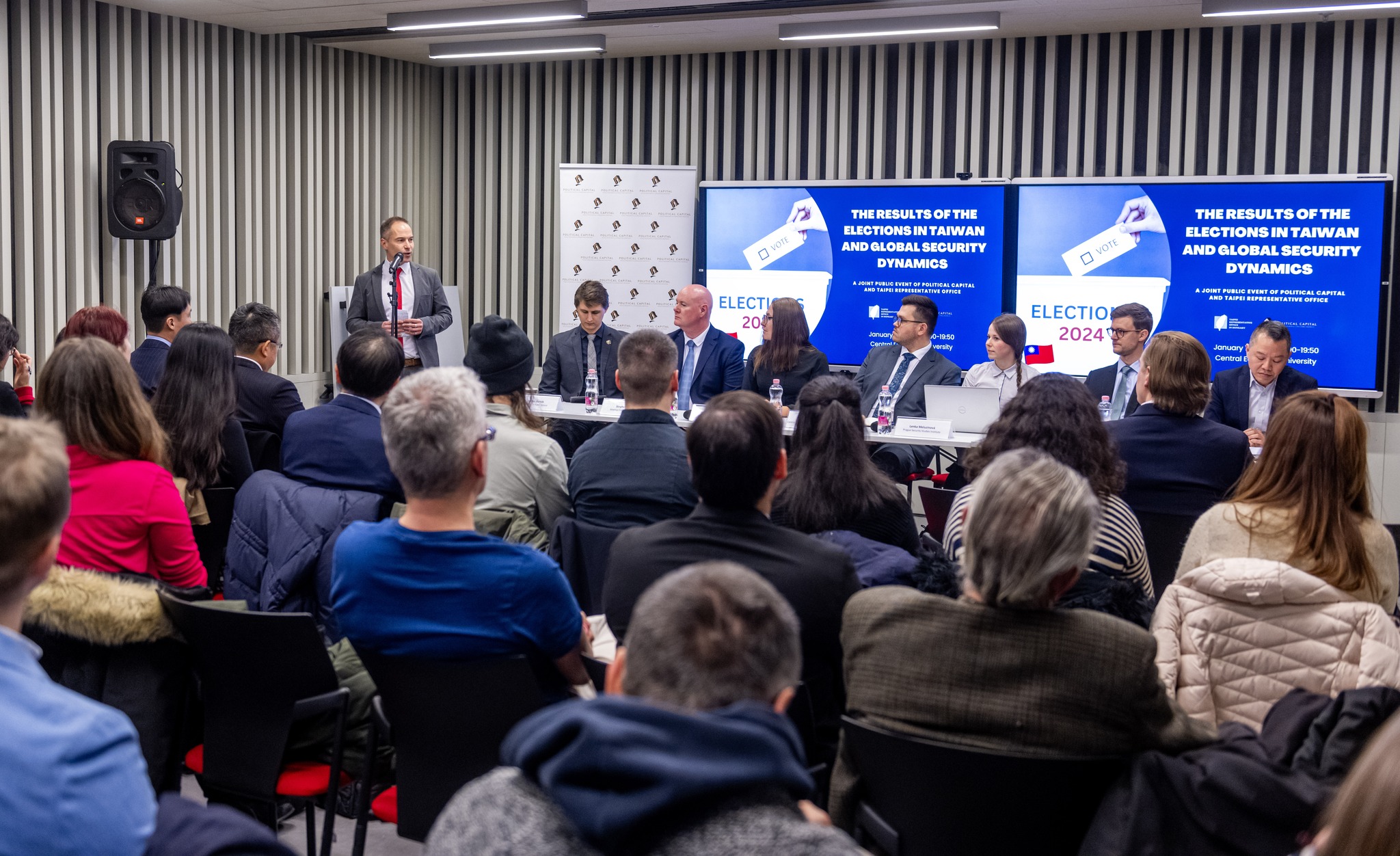The results of the elections in Taiwan and Global Security Dynamics – conference summary
On 16 January 2024, Political Capital organized a conference on "The results of the elections in Taiwan and Global Security Dynamics" in cooperation with the Taipei Representative Office in Budapest. The experts invited to the roundtable analyzed the results of the presidential and parliamentary elections held on 13 January 2024, the foreign policy of the island nation, China's attempts to interfere, and the implications for the wider security environment.
Speakers:
- Yujen Kuo, Institute for National Policy Research
- Lenka Meluzínová, Prague Security Studies Institute
- Matej Šimalčík, Central European Institute of Asian Studies
- Justyna Szczudlik, Polish Institute of International Affairs
- Stephen Yates, America First Policy Institute
- Michael Zinkanell, Austrian Institute for European and Security Policy
Moderátor: András Bartók, University of Public Service
Experts agreed that it is not the election itself that is worsening the security environment in the region but rather the increasingly aggressive Chinese political, economic, diplomatic, and military responses to the democratic political process on the island nation. The outcome of the election has not affected all this, as the causes of the conflict between Taiwan and China are rooted in deeper trends.

Over the past decade, the identity of Taiwanese society has changed significantly, with two-thirds of the population now identifying themselves as primarily Taiwanese, while the proportion of those with a Chinese identity has declined significantly. As a result, the political distance between parties on China policy has narrowed, most notably between the Kuomintang (KMT), which previously favored closer relations with China, and the more pro-independence Democratic Progressive Party (DPP). Today, both parties are in favor of maintaining the status quo, rather than declaring independence or unification with China. They want to strengthen Taiwan's own defense capabilities, while maintaining close ties with the United States and expanding Taiwan's international relations and room for maneuver.
On the other side of the Strait, China has become much more aggressive and assertive in recent years since Xi Jinping came to power. It has become less cooperative in addressing global challenges and has sought to assert its interests through political warfare. China uses Taiwan as a laboratory to test tools and narratives to influence public opinion. The dismantling of Hong Kong's democracy in 2019 has shown Taiwanese society and the democracies of the world what China's 'one country, two systems' principle really means. China is, in fact, offering Taiwan total control instead of the freedom it currently enjoys.
The Taiwanese election has shown that China is still unable to exert its influence as effectively as Russia, as evidenced by the fact that Taiwan has been subject to the most influence operations, and yet Beijing has failed to shift the island's population in a pro-China direction. From a Central European perspective, the lesson of the Taiwanese election is that it is possible to effectively resist authoritarian influence. Particularly at a time when China, alongside Russia, has begun to actively employ the tools of hybrid warfare, learning much from the Russians.
In the near future, we can expect steadily increasing political, diplomatic, economic pressure and perhaps military aggression from Beijing. The escalation of the wider conflict is not the result of political changes in Taiwan but of China's response to them.
Over the past years, Taiwan has become extremely important for the security and economic stability of the Central European region. The disruption to supply chains caused by the coronavirus has made Europe aware of Taiwan's economic importance, while the Russian invasion of Ukraine and the military threat posed by the strengthening Beijing-Moscow axis have raised the stakes in terms of military security and the importance of preventing a war in the Taiwan Strait.
You can watch the event here:
The event was supported by the Taipei Representative Office in Budapest.

